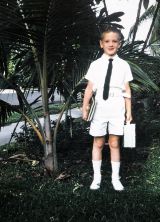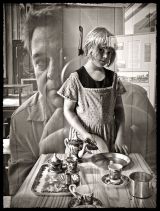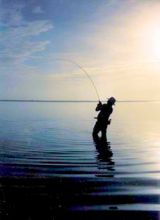- Forum
- General Discussion | Introductions | Off Topic Forum
- Photography General Discussion
- Red filters and B&W photos
Red filters and B&W photos
Post #48806
Post #48842
-

- DestinDave
- Photography Hooked
-
- Canon EOS 450D
- Followers: 38
- Posts: 907
-
Points:
0
Post #48867
Dave Speicher
I thought I wanted a career.. turns out I only wanted paychecks.
dlspeicher.zenfolio.com
-

- effron
- Newbie
- Followers: 1623
-
Points:
129640
Post #48871
photo.net/equipment/digital/editing/bwconvert/
Why so serious?
-

- photobod
- Paparazzi
-
- Nikon D800 + D300
- Followers: 563
- Posts: 8907
-
Points:
150
Post #48872
www.dcimages.org.uk
"A good photograph is one that communicate a fact, touches the heart, leaves the viewer a changed person for having seen it. It is, in a word, effective." - Irving Penn
Post #48879
Joves wrote: I did an experiment at one time with the good old B&W filters I had from my film days. I shot in both color and desaturated modes and found the filters din not have th same effect as they did on film. I had more latitude working with them in Photosop ACR after I desturated them by using the color channels. With the filtered shots I still had to play with them to get the same effects. Also for darker skies I still find a Circual Polarizer as the best tool for photos you plan on converting to B&W. I always shoot in color then desturate then adjust the color channels no better way IMO.
Fascinating response!
-

- Henry Peach
- Apprentice
-
- I currently use a 5DII or Sony Nex-3 most of the time.
- Followers: 50
- Posts: 2925
-
Points:
16
Post #48927
I know a guy who insists that he gets better results using the filters on camera. He's shooting raw so he still ends up with a color photo, although it's all red, and then converts to BW in Adobe Camera Raw. Personally I think he hasn't practiced digital processing enough, but if it's not his cup of tea, then using the filter on camera is the right way for him.
In my own personal testing I felt there was no doubt that I could achieve the same effects as the on-camera filter in processing, and with a lot more control. I'm not stuck with a red #25. I can have a slight variation. Even better, using masks I can apply a red 25 to the sky, some other filtering over here, and yet a third (or more) filter over there.
One thing I noticed using orange and red filters on the camera is that the blue channel gets really noisy. I was just pixel peeping, and not making prints, so I don't know if it's really a problem. The guy I mentioned above says he doesn't have problems with it.
I've got a big, old filter wallet full of filters I used when I shot film. Since switching to digital the only ones I use anymore is the circ pol, and occasionally the NDs.
-

- IIIM
- New Kid On The Block
-
- Nikon D700
- Followers: 11
- Posts: 46
-
Points:
0
Post #48929
Henry Peach wrote: You should do some personal testing, and see which method you like better.
I know a guy who insists that he gets better results using the filters on camera. He's shooting raw so he still ends up with a color photo, although it's all red, and then converts to BW in Adobe Camera Raw. Personally I think he hasn't practiced digital processing enough, but if it's not his cup of tea, then using the filter on camera is the right way for him.
In my own personal testing I felt there was no doubt that I could achieve the same effects as the on-camera filter in processing, and with a lot more control. I'm not stuck with a red #25. I can have a slight variation. Even better, using masks I can apply a red 25 to the sky, some other filtering over here, and yet a third (or more) filter over there.
One thing I noticed using orange and red filters on the camera is that the blue channel gets really noisy. I was just pixel peeping, and not making prints, so I don't know if it's really a problem. The guy I mentioned above says he doesn't have problems with it.
I've got a big, old filter wallet full of filters I used when I shot film. Since switching to digital the only ones I use anymore is the circ pol, and occasionally the NDs.
-

- Eddy
- Snapobsessed
-
- Nikon D300
- Followers: 39
- Posts: 308
-
Points:
98
- Forum
- General Discussion | Introductions | Off Topic Forum
- Photography General Discussion
- Red filters and B&W photos
Latest Reviews
The Canon EOS R100 is an entry-level mirrorless camera introduced in 2023. But just because it’s an entry-level camera doesn’t mean it’s a bare-bones camera. Find out why in this review!
Nikon’s retro-looking Nikon Zfc is anything but retro. Under its classic body is a host of features and amenities that make it a worthwhile compact mirrorless camera for 2024.
The Canon EOS R50 is one of the newest R-system cameras from Canon. Is it worth your money? Find out all the details you need to know in this comprehensive review.
The Sony FE 70-200mm f/2.8 GM OSS II is Sony’s flagship mirrorless zoom lens. As such, it’s loaded with features and has a top-shelf build quality that makes it a top pick!
Latest Articles
Using leading lines in photography helps improve the composition by drawing viewers in and leading their eye from the foreground to the background. Explore some fine examples of this in this guide!
The Insta360 has one of the best lineups of action cams and 360-degree cameras. With these Insta360 accessories, you can elevate your photography and videography game!
Creating impactful photos of landscapes depends on many factors, not the least of which is your talent behind the lens. This guide explores other elements required for the best product.
The Canon EOS R100 is an entry-level mirrorless camera introduced in 2023. But just because it’s an entry-level camera doesn’t mean it’s a bare-bones camera. Find out why in this review!
Are you ready to upgrade your camera? Before buying new, you might consider the value of purchasing used gear to save money.
The Olympus OM-D E-M10 Mark IV is a micro four thirds camera released in 2020. It’s an entry-level system along with the OM-D E-M5 Mark III. Use this guide to determine which one is best for you!
Blue hour photography might not be as well known as golden hour photography, but it is every bit as good a time to create epic images of landscapes. Learn how in this quick tutorial!
Nikon’s retro-looking Nikon Zfc is anything but retro. Under its classic body is a host of features and amenities that make it a worthwhile compact mirrorless camera for 2024.















